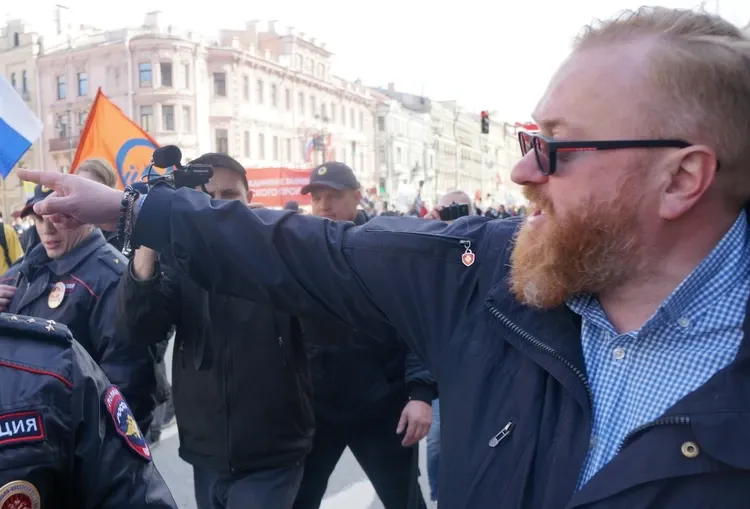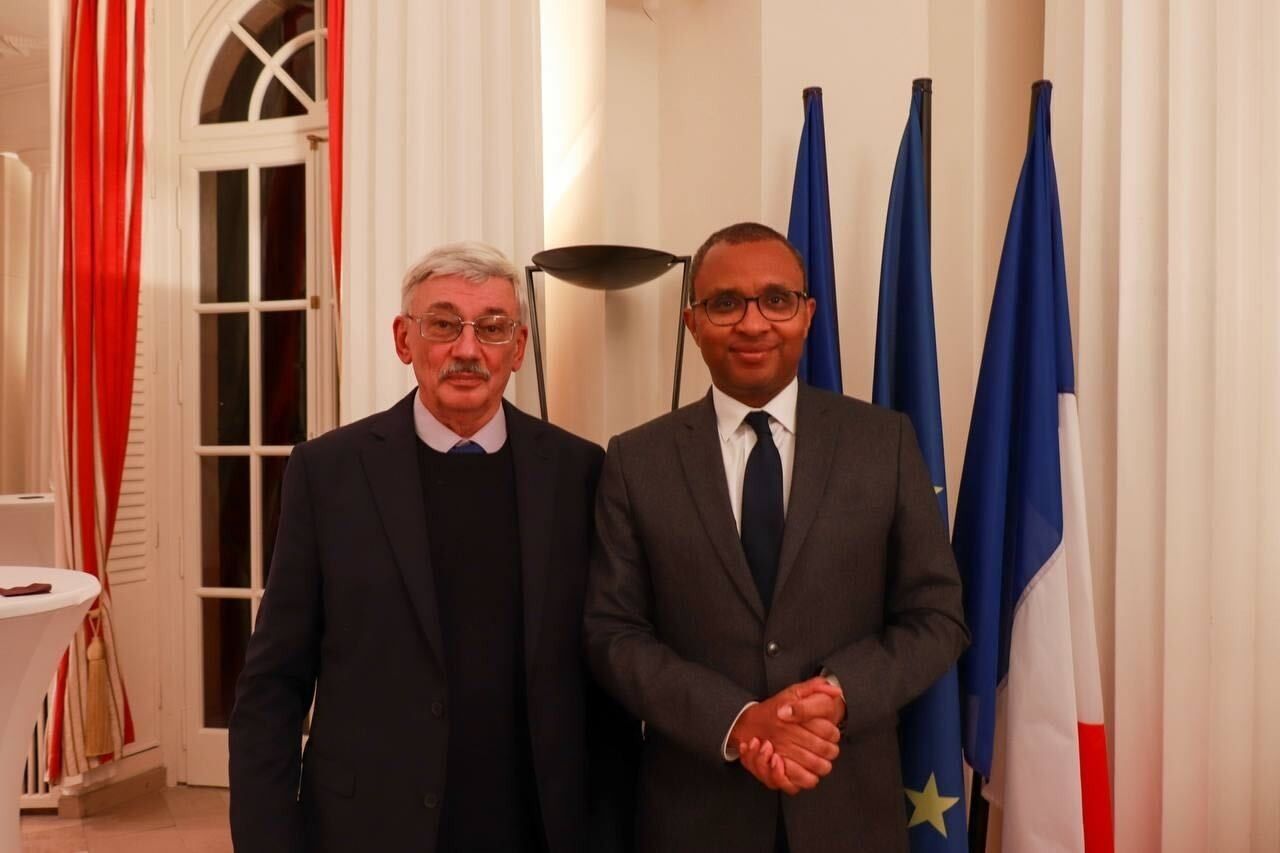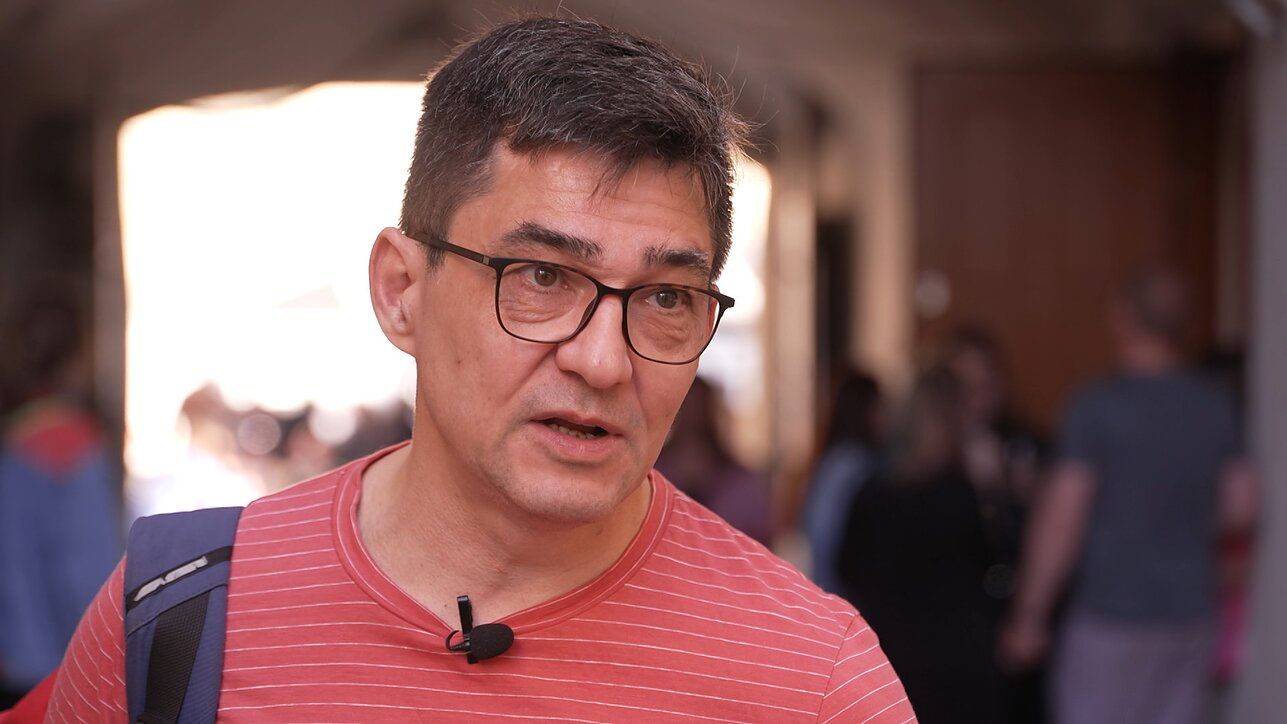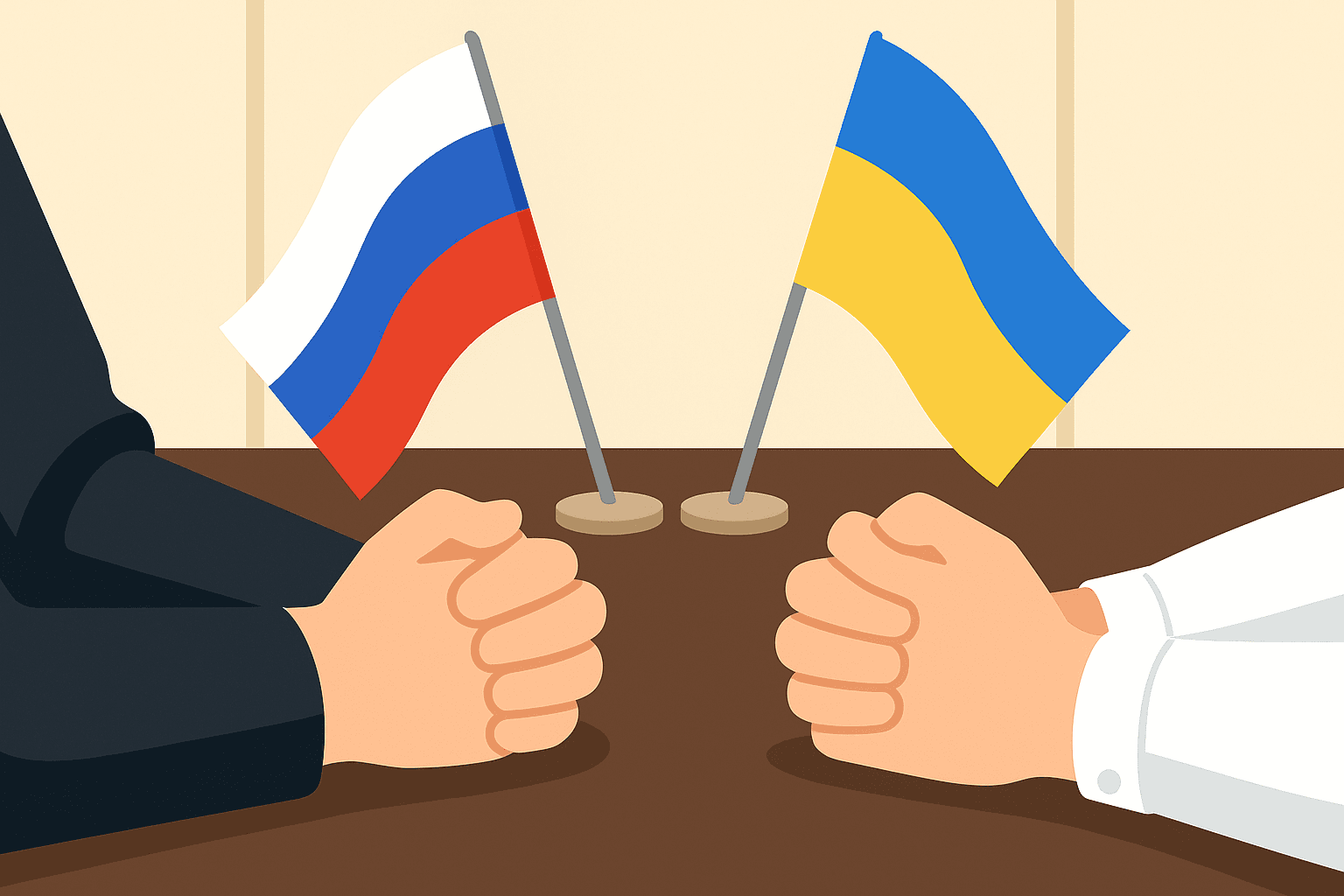Этот материал доступен на других языках:
ru
4 дек 2024
ECHR: Russian Authorities Failed to Protect LGBT People from Discrimination

Виталий Милонов на «Радужном шествии» в Санкт-Петербурге. Фото: «Комсомольская правда»
Оглавление
- What happened
- Police Report
- Administrative offence complaint
- Civil case
- What the European Court of Human Rights (ECHR) Said
On December 3, 2024, the European Court of Human Rights issued a ruling in the case of Alexey Evstifeev, Ruslan Minyakhmetov, and Daniil Grachev. The ECHR sided with the applicants and stated that the authorities failed to meet their obligations to adequately respond to homophobic statements, and as a result, did not ensure the applicants' right to respect for private life and did not protect them from discrimination.
The case "Evstifeev and Others v. Russia" shows that Russian authorities turn a blind eye to open hatred towards LGBT people. Impunity fuels the rise of such crimes.
What happened
On May 1, 2015, Alexey Evstifeev, Ruslan Minyakhmetov, and Daniil Grachev participated in a rally against hate and discrimination held in St. Petersburg. They marched in the LGBT column, carrying rainbow flags and banners related to LGBT issues. Evstifeev was one of the organizers of the rally.
The politician and deputy Vitaly Milonov watched the rally. He stood near the event, and a few minutes after it began, he started shouting insults and threats at the participants in the LGBT column. Milonov called them "AIDS-infected," "perverts," and "degenerates." He claimed to know half of the participants and alleged that all of them were pedophiles. The deputy also shouted that all participants should be "eliminated," thrown into the river, crushed by tanks and tractors, arrested, and imprisoned for five years, "thrown into a cauldron," and wished for them to "die of AIDS." Pointing at specific participants, he mimicked a throat-cutting gesture or shouted, "I will find you, be afraid!" or "I will cut your head off."
Specifically targeting Grachev, the deputy shouted, "I will find you, I will find you, got it? He has a flag. Why don’t you arrest him? Arrest this scum!" Milonov also directed vulgar and derogatory remarks at Minyakhmetov, saying, "F***t! Total f****t. F****t, f****t, f****t, get out of here. I'll give you a broken spoon".
Police Report
Evstifeev, Minyakhmetov, and Grachev filed a police report alleging violations of equality of human and civil rights (Article 136 of the Criminal Code), public incitement to extremist activities (Article 280 of the Criminal Code), and incitement of hatred as well as humiliation of human dignity (Article 282 of the Criminal Code). They argued that Vitaly Milonov’s statements were extremist and incited hatred and hostility toward the LGBT social group. The applicants provided video recordings of the deputy's statements made during the rally.
However, the Investigative Committee refused to initiate a criminal case, stating that Vitaly Milonov was merely expressing his personal opinion regarding LGBT people. The applicants appealed this decision in court, but the courts upheld the refusal with the same reasoning.
Administrative offence complaint
Evstifeev, Minyakhmetov, and Grachev filed a complaint against Milonov for violating the administrative code. They claimed that the deputy behaved inappropriately (Article 20.1 of the Administrative Code), insulted them (Article 5.61 of the Administrative Code), and that his actions amounted to discrimination based on their belonging to the LGBT community (Article 5.62 of the Administrative Code).
However, the deputy prosecutor responded that the applicants' complaint did not demonstrate the elements of administrative offenses. Specifically, it was deemed impossible to identify the individuals supposedly insulted by Milonov, as he did not name them directly. According to the prosecutor's office, statements directed at a group of unnamed individuals, recognizable only by certain common traits, could not be considered an insult to any specific person.
Civil case
Evstifeev, Minyakhmetov, and Grachev also filed a civil lawsuit against Vitaly Milonov, citing articles on the protection of honor, dignity, and other intangible benefits (Articles 152 and 150 of the Civil Code), as well as compensation for moral harm (Article 151 of the Civil Code). In their claim, they argued that the deputy’s words were directed at a small group of clearly identifiable individuals, thereby targeting each member of the group, and some of the remarks were specifically aimed at the applicants.
In their complaint, the applicants stated that Milonov insulted them because of their sexual orientation and out of hatred for LGBT people. This, they argued, violated their right to honor, human dignity, respect for private life, and their right to be free from discrimination. Additionally, they claimed that the deputy spread false information that defamed their honor and dignity, namely, that they were pedophiles and HIV-infected.
A judicial expert who analyzed Milonov’s statements concluded that his remarks were offensive and directed at a specific person or group of people. Nevertheless, the court dismissed the applicants' lawsuit, reasoning that they could not have heard Milonov's statements due to the music and that they could only have learned about his remarks from the video recording. Moreover, the court held that Milonov expressed his personal negative opinion about the LGBT community as a whole, not about any specific individuals.
What the European Court of Human Rights (ECHR) Said
On December 3, 2024, the ECHR issued a ruling in the case "Evstifeev and Others v. Russia." As expected, the court found that the applicants' rights had been violated under Article 14 of the Convention, which prohibits discrimination, in conjunction with Article 8, which guarantees the right to respect for private and family life. The court noted the following points:
- The authorities failed to investigate the incident.
- The authorities failed to balance the applicants' right to respect for their private life and protection from discrimination with Vitaly Milonov's right to freedom of expression, focusing solely on the latter's rights.
- Even if the applicants could not hear the disputed statements at the time they were made, they nonetheless learned about them later from the video recording and felt their impact when watching it.
In conclusion, the court found that the national authorities had failed in their positive obligation to adequately respond to the verbal insults and physical threats directed at the applicants, which were motivated by homophobia. Failing to address such incidents encourages hostility toward LGBT people, reinforce a culture of intolerance and discrimination, and encourage further similar actions.

Anastasia Zakharova
lawyer at Memorial Center
"Nine years have passed since the incident at the rally, and since then, the situation for LGBT people in Russia has worsened significantly. The number of hate crimes has been increasing in recent years. However, only those cases that make it to court are included in the statistics, while in reality, far more such violations are committed. Courts still refuse to recognize the hate motive when it comes to crimes against LGBT individuals.
This practice of impunity fosters an atmosphere of fear and intolerance, where discrimination and violence continue to grow".







